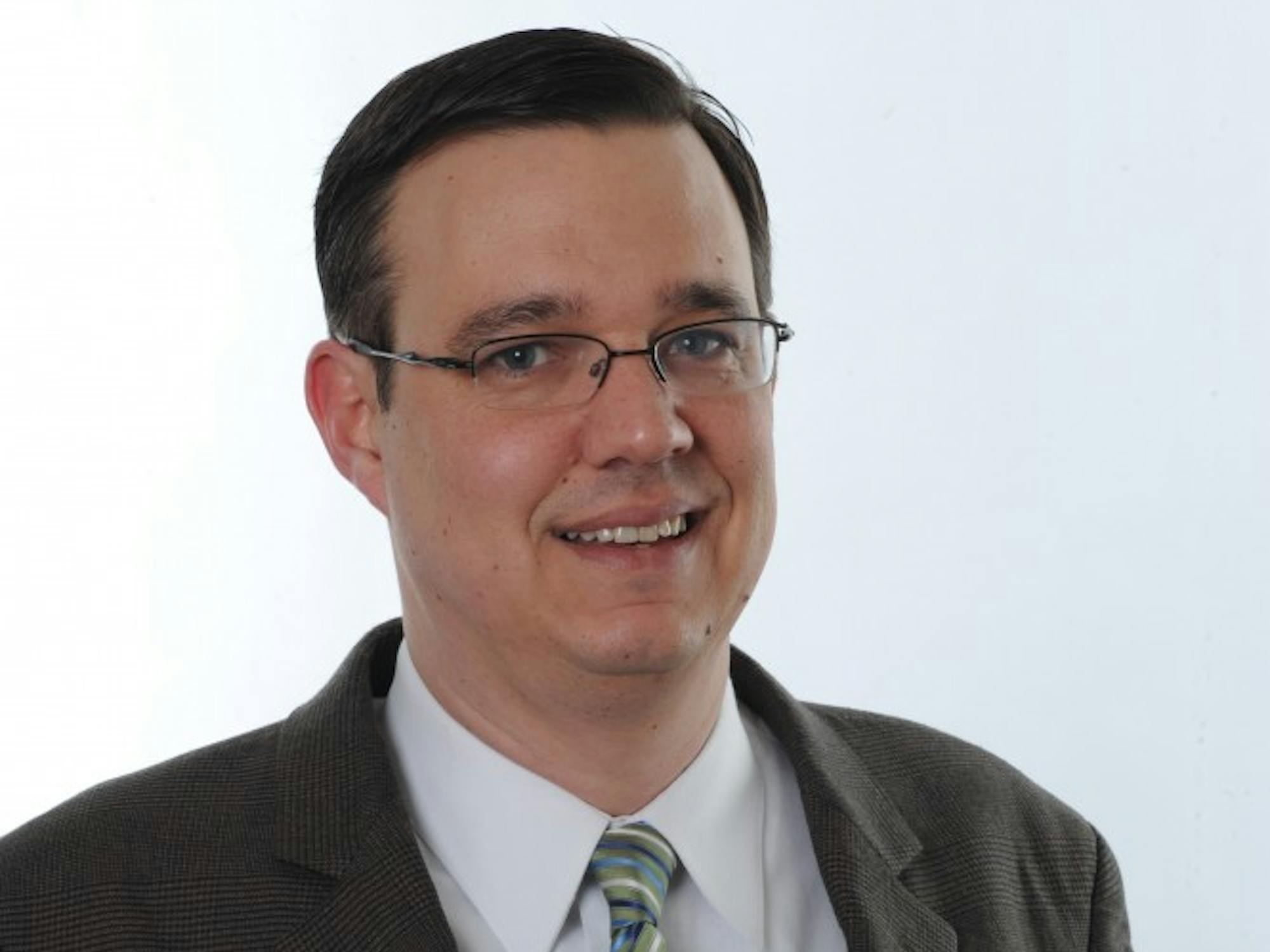In honors of Veterans Day, Nov. 11, The Eastern Echo spoke with Jesse Kauffman, an Eastern Michigan University assistant professor in the history and philosophy department.
Kauffman, originally from the suburbs of Los Angeles, served in the Navy for four years, 1993-1997. He said he joined because he heard it built character, “and I needed to build some.”
As a teenager, he said he got in trouble often, getting kicked out and dropping out of high school multiple times.
“To sort of break out of that and get away from Los Angeles and just start fresh, I thought the military would be a good way to do that,” Kauffman said.
After serving in the Navy, he earned a bachelor’s in history at the University of California and a Ph.D. in history at Stanford University. He moved to Michigan to teach at EMU.
Here at EMU, he teaches undergraduate and graduate courses on Western Civilization, modern German history, European military history, and historical research and writing.
“I think it’s really cool to be able to interest other people in the things you’re interested in and to try and catch their imagination the way that it worked for me.
He said he likes the students at EMU, “they’re a pleasure to deal with.”
Kauffman studies modern European political and cultural history with a focus on Germany and Poland. He recently wrote a new book, Elusive Alliance: The German Occupation of Poland in World War I.
The book is about how the German Army tried to build a client state in Poland during the occupation during World War I. The military, instead of using oppression, left the country somewhat liberated and tried to win the peoples’ loyalty.
Kauffman said his interest in the topics he studies stems from the time he spent traveling in the navy. He said traveling to places like Italy, Greece, Spain and Turkey caught his imagination.
“We just went to all these places with all this rich history. I’m from southern California where there is no history.”
He said the most important thing he gained from his experience with the Navy was an appreciation for having freedom and control over his own life.
“When I got out [of the Navy] I was so determined to make the most of everything,” Kauffman said. “Because, now I realize what it great gift it was to be able to [have] that, whereas for four years I’d been stuck and [there was] not much I could do about it.”
He said he did a lot of “drudge work,” like cleaning bathrooms and piling boxes of frozen ground beef in a cargo freezer.
“When you’re an enlisted man, you’re at the very bottom of a very long hierarchy,” Kauffman said. “So you have a lot of people who can tell you what to do and there’s nothing you can do about it.”
He said of his time in the Navy, “I hated it, but I’m really glad I did it and would certainly do it again.”










